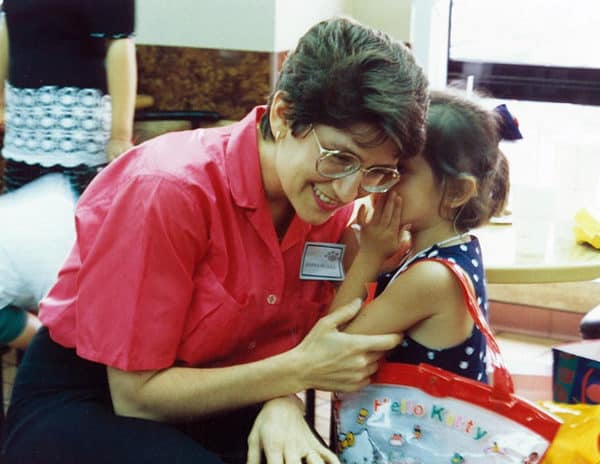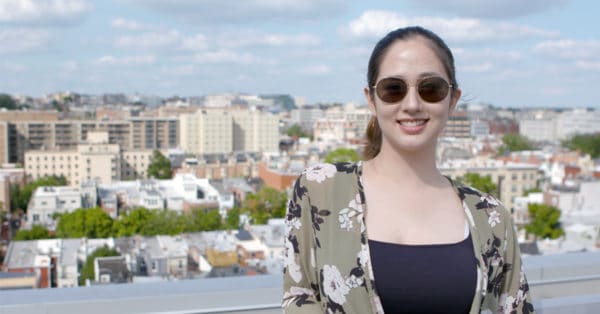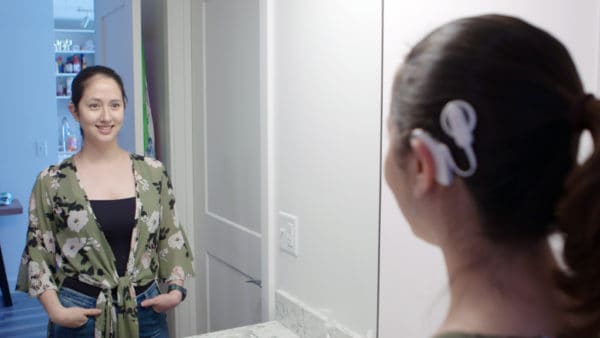“Developing self-advocacy skills from a young age has really improved my life in many ways.” Alana Nichols , a cochlear implant recipient, TV Travel Show host and ambassador for the Children’s Hearing Foundation, explains how learning to speaking up for yourself as a recipient can set you up for success at any stage of life. “You are the one who understands your constantly changing needs”
Advocate for yourself
While many parents are understandably protective of children with hearing loss, Alana Nichols’ mother instilled in her, from a very young age, the importance of being able to advocate for herself.
“Parents play an incredibly important role in laying down the environment and foundation for children with hearing loss,” says Alana who in 1994, as a 2-year-old, received one of the first cochlear implants in Taiwan.
Alana’s mother, American Joanna Nichols – founder of the Children’s Hearing Foundation – was passionate about “balancing protection with independence, and guidance with positivity”1 in bringing up her two daughters. Some of Alana’s earliest memories are of being in school and learning to advocate for her own needs, problem-solve and adapt in various environments. 2
Communication skills for any age
On Alana’s first day of school, Joanna stood in the doorway while Alana introduced herself to her classmates and explained her hearing loss.
“She pointed out how important is was to let everyone – my classmates, my teachers, my new friends, everyone – know what I had and what I needed from them, whether it was, ‘Please face me when you’re speaking, ‘Please speak a bit louder, I can’t hear you’, or ‘Do you mind if we move to a quieter place?’.”
These are skills that, Alana says, she still utilizes as an adult.
Now the host of a successful TV Travel Show and ambassador for her mother’s foundation worldwide, Alana continues to advocate for herself, particularly at work where she encounters people from varied cultures. 3
“Often times you will be communicating with different co-workers or in meeting environments or even phone calls and you’ve got to let people know what you can and cannot do.”
“Developing self-advocacy skills from a young age has really improved my life in many ways,” says Alana. “As an adult I’m able to do a variety of things on my own terms and in an independent manner.”
Alana’s personal tips for parents of children with hearing loss
- Provide care and protection while allowing opportunities for your child to experience [age-appropriate] independence: “My parents were always there to guide me, but they made sure that I was able to face [obstacles] by myself in order to be able to do it on my own as an adult”.
- Encourage your child, from a young age, to advocate for themselves: “You are the one who understands your constantly changing needs”.
- Correct their speech or pitch with positive affirmations and encouragement: “I personally found that receiving positive guidance from my mother helped me learn to improve my language acquisition skills. Over time, it gave me the self-esteem needed to face life’s obstacles”. 4
Alana’s top tips for advocacy in the workplace
- Don’t hesitate to ask for the person to repeat themselves or to move to a quieter location if you cannot hear them clearly.
- Talk with one co-worker after a meeting to review everything that was said and make sure you haven’t missed anything important.
- “It’s better to be overprepared than not prepared enough”. If you know ahead of time that the work situation is going to make communication difficult, do your homework and prepare as much information beforehand as you can.5
Click here for additional communication tips.
- Nichols, A. The Second Best Thing My Parents Gave Me [Internet]. 2012 [accessed 22 April 2020]. Available from: https://www.chfn.org.tw/english/column/799
- Images courtesy of Aurora Digital Media Co. Ltd.
- Images courtesy of Aurora Digital Media Co. Ltd.
- Images courtesy of Aurora Digital Media Co. Ltd.
- Views expressed are those of the individual. Consult your health professional to determine if you are a candidate for Cochlear technology.


